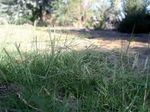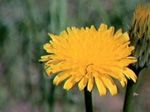This document was originally published on the website of the CRC for Australian Weed Management, which was wound up in 2008.
←
→
Page content transcription
If your browser does not render page correctly, please read the page content below
This document was originally published on the website of the CRC for Australian Weed Management, which was wound up in 2008. To preserve the technical information it contains, the department is republishing this document. Due to limitations in the CRC’s production process, however, its content may not be accessible for all users. Please contact the department’s Weed Management Unit if you require more assistance.
factsheet
Managing garden weeds
planning tactics
t a c t i c s
Weeds in gardens Integrated weed Propagule: method of multiplication
management (IWM): a flexible or spread used by a plant to reproduce
Any plant can be a weed if it is growing system, incorporating multiple weed eg seeds, corms, vegetative parts,
in the wrong place. Commonly grown management tactics, aiming to reduce spores.
garden plants can be classed as weed numbers in an economic and
weedy, particularly if they ‘jump’ the sustainable manner. VET sector resource: RTD5402A
p l a n n i n g
garden fence invading other gardens, Develop a strategy for the management
agricultural areas or bushland. Weed management tactic: of target pests.
method or activity used to manage
Generally, a plant that becomes a
weeds in a target area.
problem weed will have the ability
to aggressively compete with other
plants. It will be able to rapidly grow,
tactic used at each of these times is Garden weed planner
reproduce, spread and persist. These
w e e d s :
likely to differ. Weed control tactics can
plants produce large numbers of A garden weed planner can be
be grouped according to their main aim
propagules and often more than one used to develop and outline a weed
and which part of the weed life cycle
type of propagule (eg onion grass management plan. It identifies which
they are targeting. They may aim to kill
produces a large number of seeds as tactics are suitable for use and which
the weed or simply stop the production
well as corms). Tactic Group they belong to. Going
of viable propagules.
G a r d e n
to the effort of filling in the planner
Understanding a weed's life cycle and
The various tactics that can be used to highlights gaps and any possible
method of spread is essential for:
manage garden weeds can be allocated weakness in the plan. A blank garden
• planning a successful garden weed to one of the five Tactic Groups. This weed planner is located on page 4.
management program assists in planning a more successful
Example garden weed planners can be
• stopping weeds spreading from one program by ensuring control is targeted
found in the Managing garden weeds
part of the garden to another at more than one part of the weed's
factsheets relating to:
• avoiding the introduction of new life cycle.
weeds to the garden and • bulbs, corms and tubers
Examples of garden weed management
• preventing weeds from 'jumping the • plants with large seed and fruit
tactics from each Tactic Group are listed
fence' and becoming a serious pest. in the table on pages 2 and 3. • wind dispersed plants
The table on page 5 outlines some • creeping plants.
Successful weed management relies on:
of the key methods of weed spread,
• using a variety of tactics from a Best garden practice
within, into and out of the garden.
number of Tactic Groups Best garden practice or management
Managing garden weeds • choosing the right tactics to favour desirable garden plants can
• applying and timing tactics correctly. improve the success of a weed control
Tactic Groups A tactic may belong to one or more tactic used. Best garden practice
There are a number of tactics that can Tactic Groups eg digging can be includes activities such as monitoring
be used to manage garden weeds used to kill or remove a weed (Tactic weeded areas, mulching, replanting
and there are various opportunities Group 2) or to remove propagules, weeded areas with desired plants and
during the weed’s life cycle for weed such as bulbs, from the soil in the area providing the required nutrients to
management. The weed management being targeted (Tactic Group 1). encourage active plant growth.
C o o p e r a t i v e R e s e a r c h Ce n t r e f o r A u s t r a l i a n W e e d M a n a g e m e n t • F a c t s h e e tt a c t i c s
Using Tactic Groups to manage weeds in gardens
Related tactic
Tactic Group and aim Objective and outcomes
example
Tactic Group 1 Dig Remove and dispose of propagules such as rhizomes, bulbs and vegetative plant parts
Deplete the weed from the area of the garden being treated.
seedbank. Good for weeds with large underground propagules.
Time consuming and tedious but it is very effective, particularly for a small area.
p l a n n i n g
These tactics focus on Rake and collect Rake, collect and dispose of fruit and berries from the ground.
removing or destroying Reduces the chance of birds and animals
weed propagules in the eating and spreading seeds within the
area being targeted, fruit.
thereby reducing the
number of weeds of each Note: Do not place fruit in household
species already present. compost heaps as the heat generated
within them will rarely kill all the seed.
w e e d s :
Mulch Mulch with materials such as thick layers
of newspaper, straw, bark chips and
gravel. Weed mat is also effective.
Causes the seeds of many weeds to rot
and become non-viable.
Simple and effective, and water-wise too!
G a r d e n
Replace soil Remove soil containing propagules from heavily infested areas. Replace with clean soil.
Tactic Group 2 Dig Dig, weed or chip whole plants.
Kill and remove weeds. Very effective for removing small weeds.
Note: It is important to dig out the root system to ensure the weed does not regrow.
These tactics focus on Apply herbicide Apply herbicide to weeds using an appropriate method.
killing the weeds, often
Apply herbicides to actively growing weeds. Avoid applying them to plants that are
targeting weeds when
stressed due to factors such as lack of water, over-watering, frost or hot weather.
they are small, but can also
be used on large, mature Very effective control method.
shrubs and trees. Plants often have a time in their life cycle when they are more sensitive to herbicide and
control is likely to be much better eg bulbs such as oxalis are more susceptible to a non
selective herbicide at flowering when bulb resources are low. Seek advice and read and
follow label directions carefully.
Herbicides can be selective (ie kill the target but are safe on non-target species
eg dicamba and MCPA used to kill broadleaf weeds in grass lawn) or non-selective (kill all
plants that herbicide is applied to eg glyphosate).
Note: For further information see
guidelines on the Weeds CRC website:
Herbicides: knowing when and how to
use them and Herbicides: guidelines for
use in and around water.
Mulch Mulch with materials such as thick layers
of newspaper, straw, bark chips and
gravel. Weed mat is also effective.
Inhibits the establishment and growth of
weeds.
Tactic Group 3 Cut – dead head Remove spent flowers to stop formation of fruit, berries or seed.
Stop weed seed set. Prevents weed multiplication and spread but does not kill the mature weed.
Cut – prune Tip-prune (rather than dead-heading) may be more practical to remove spent flowers to
These tactics focus on stop formation of fruit or seed.
stopping the formation Often beneficial to the plant, improving shape and growth.
of propagules, thereby
avoiding further Cut – mow or Mow lawns to stop seed-set of weeds that have flowers on a tall stem.
whipper snip Greatly reduces the number of seeds set.
multiplication and spread
of actively growing weeds. Note: Repeat cutting will be needed to minimise the number of seeds set. Repeat cutting
may encourage prostrate growth of some weeds. Seed production on these prostrate
weeds will also need to be reduced using appropriate tactics and best garden practice.
C o o p e r a t i v e R e s e a r c h Ce n t r e f o r A u s t r a l i a n W e e d M a n a g e m e n t • F a c t s h e e t 2t a c t i c s
Using Tactic Groups to manage weeds in gardens
Related
Tactic Group and aim Objective and outcomes
example tactic
Tactic Group 4 Collect and Collect and dispose of propagules eg fruit
Prevent replenishment dispose and seeds before they are dispersed from
of the weed seedbank. the parent plant.
Prune and Prune as an alternative to collecting fruit.
p l a n n i n g
dispose More practical method of removing
These tactics focus on propagules in some situations, particularly
stopping the spread of from large shrubs and small trees.
propagules from actively
growing weeds.
Tactic Group 5 Quarantine Check new pot plants for weeds as they can be a great source of new weeds.
Prevent introduction of Monitor area where new specimens have been planted out of pots.
weed seed from Dispose of discarded soil from pots.
w e e d s :
external sources.
Note: Creeping oxalis is regularly seen in commercial pot plants and is readily spread to
These tactics focus on all parts of the garden as the new specimen is planted out.
stopping introductions Clean tools Clean mowers and garden tools,
of weeds into and the removing and disposing of soil and seeds
movement of weeds when leaving a weedy area and before
away from the area being entering an area that is weed free.
targeted.
Note: Clean vehicles such as prams,
G a r d e n
This is a key step in weed bicycles (particularly tyres), shoes (soles
management but is often and laces), clothing (socks) and animals.
overlooked.
Use weed-free Source and purchase garden materials
garden materials such as garden soil, potting mix and
mulch that are weed free.
Note: Manure may contain viable weed seeds as many seeds pass through animals
without being damaged.
Choose plants Select plants suited to your environment that have a low risk of becoming a weed.
carefully Avoid the plants that ‘go mad’ and those which you ‘can’t kill with an axe’!
Best garden practice Choose plants Introduce desirable and competitive
carefully plants to the area where the weeds have
Implement best garden
been removed.
practice to favour desirable
plants rather than the Apply nutrients Provide nutrients and water appropriately
weeds. and water to give desirable plants the competitive
advantage.
The success of the chosen
weed management tactics Control diseases Control diseases and insects to give
relies upon the use of best and insects desirable plants the competitive
garden practice, increasing advantage.
the benefits gained from An unhealthy plant or area where plant
the weed management death has occurred provides an excellent
tactics used. opportunity for weed invaders.
Mulch Mulch with materials such as thick layers of newspaper, straw, bark chips and gravel to
keep desirable plants moist and roots cool during summer. A weed mat is also effective.
Monitor Check regularly for weeds around new plants and weeded areas. Control when small.
Disposal of garden waste as they are not always killed and may weeks. Unfortunately the minimum
even regrow in the compost heap. time required for the heat to kill
There is little accurate information on • Spread vegetative plant parts various propagules is not known.
the best methods of garden waste (runners) in a contained area and • Take propagules and soil containing
disposal. It depends on many factors. allow to dry and die. Seeds, bulbs propagules to a refuse dump where
The guidelines below can assist with and rhizomes are likely to survive. rubbish is buried.
responsible disposal of garden waste. • Place propagules in a plastic bag • Never dump garden waste anywhere
• Avoid placing propagules in compost and leave in full sun for a number of but at an official refuse disposal site.
C o o p e r a t i v e R e s e a r c h Ce n t r e f o r A u s t r a l i a n W e e d M a n a g e m e n t • F a c t s h e e t 3t a c t i c s
Garden weed planner
Target weed: Situation:
Method of spread: Key propagules:
Tactic Group and aim Tactic(s) to be used Objective and outcomes
Tactic Group 1
Deplete the weed
p l a n n i n g
seedbank.
Tactic Group 2
Kill and remove weeds.
w e e d s :
G a r d e n
Tactic Group 3
Stop weed seed set.
Tactic Group 4
Prevent replenishment
of the weed seedbank.
Tactic Group 5
Prevent introduction of
weed seed from external
sources.
Best garden practice to
favour desirable plants
C o o p e r a t i v e R e s e a r c h Ce n t r e f o r A u s t r a l i a n W e e d M a n a g e m e n t • F a c t s h e e t 4t a c t i c s
Common methods of weed spread and introduction in gardens
Method of spread or Propagule Method of spread Ways to avoid weed introductions
introduction (part of weed introduced) – examples
Acquired plants in soil Bulbs Plants from commercial Thoroughly weed pot-plants before planting out
(including those in pots, Rhizomes nurseries, local markets, – remove weedy bulbs carefully to avoid leaving
trays, punnets etc) Seeds friends. the bulbs in the soil.
Whole plant Dispose of any excess soil from potted plants
p l a n n i n g
during planting-out. Check for weeds around
new plants during the first year of growth and
control seedlings as they emerge.
Soil, mulch and manure Bulbs Garden materials from Purchase treated topsoil, manure and mulch
Rhizomes commercial suppliers, local guaranteed weed free.
Seeds markets and friends. Soil Be aware of weeds present when transplanting
around transplants within and carefully remove weedy bulbs.
the garden or from friends.
Vehicles Bulbs In tyres, in mud on tyres and Keep vehicles clean.
w e e d s :
(including trailers, bikes, Rhizomes in wheel arches, caught in Restrict vehicle movement from areas where
mowers, prams etc) Seeds undercarriage of vehicle. weeds are known to grow.
Garden tools Bulbs In soil on spades, on lawn Keep tools clean.
Rhizomes mowers, whipper snippers, Avoid weedy areas with wheelbarrows.
Seeds wheelbarrows. Mow weedy areas last then thoroughly clean
mower.
Clothing Seeds On socks, shoes, trousers, Check clothing and footwear and remove weed
G a r d e n
jumpers. seeds.
Animals Seeds On or in fur or manure of Check pets thoroughly (particularly after walks).
Seeds within fruit pets and pest animals such Fence out feral animals.
Seeds in pet food as rabbits and foxes. Check where pets are fed and where they
Horse and pet rabbit feed deposit their droppings.
Birds Seeds In droppings. Remove spent flowers or immature fruit from
Seeds within fruit In feed for caged birds. plants before they can be eaten and spread by
Seed in pet food In poultry feed. birds.
Check and control weeds where birds perch (eg
under fences, trees) and feed is discarded.
Wind (air-borne) Seeds – small Blown by wind. Remove spent flowers before seeds mature and
can be dispersed.
Remove fruit before it can be spread by birds Remove spent flowers and mature weeds Mow weedy areas last and before weed seeds
and other animals. before seed can be dispersed by the wind. are produced. Clean mower thoroughly.
For further information visit the Weeds CRC’s website: www.weeds.crc.org.au
CRC for Australian Weed Management Written by: Di Holding and Annabel Bowcher, Established and supported
Waite Road, Urrbrae Science Communicators, AnDi Communications. under the Australian
PMB 1, Waite Campus Photos: Di Holding; Annabel Bowcher; Birgitte Government’s Cooperative
Glen Osmond, SA 5064 Verbeek; NSW Department of Primary Industries. Research Centres Program
Further reading: What does your garden grow?
T 08 8303 6590
(a training resource developed by the Weeds CRC);
F 08 8303 7311 other factsheets in the Managing garden weed
E crcweeds@adelaide.edu.au series, Weeds CRC. Ref: 58/2007/fs
Disclaimer:
This publication is provided for the purpose of disseminating information relating to scientific and technical matters. Participating organisations of the Weeds CRC do not accept liability for any loss and/or damage,
including financial loss, resulting from the reliance upon any information, advice or recommendations contained in this publication. The contents of this publication should not necessarily be taken to represent the views of
the participating organisations.
C o o p e r a t i v e R e s e a r c h Ce n t r e f o r A u s t r a l i a n W e e d M a n a g e m e n t • F a c t s h e e t 5You can also read


























































